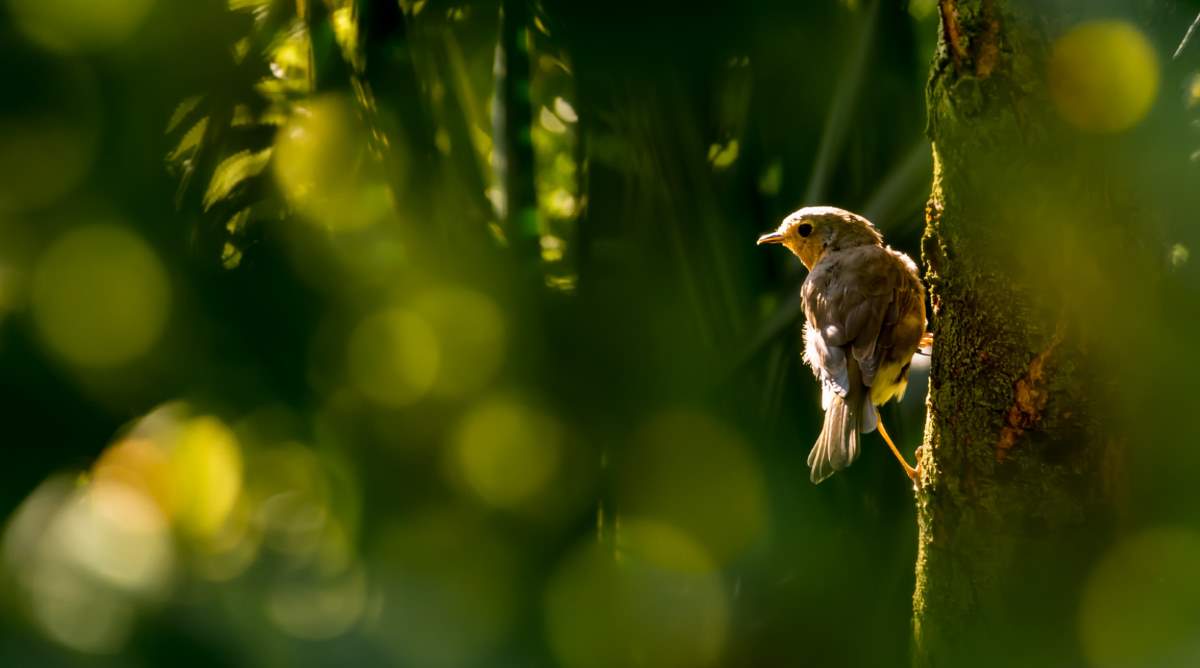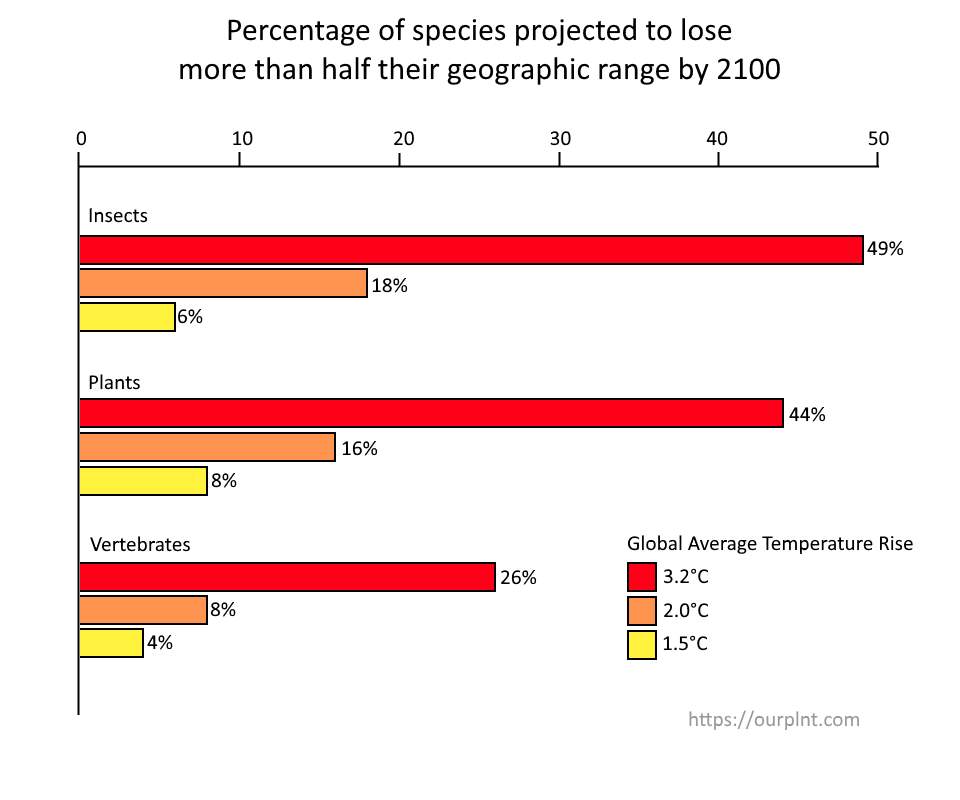If we limit global warming to 1.5°C rather than 2°C above the pre-industrial levels by the year 2100, the impacts of climate change would be much less dramatic, a new study says. According to the researchers, for vertebrates and plants, the number of species losing more than half their geographic range by 2100 will be halved when warming is limited to 1.5°C, compared with projected losses at 2°C. It would be even better for insects, the most diverse group of animals on Earth: the number is reduced by two-thirds.

The Paris Agreement aims long-term goal of keeping the increase in global average temperature to well below 2°C above pre-industrial levels; and to aim to limit the increase to 1.5°C, since this would significantly reduce risks and the impacts of climate change.
Scientists (see notes 1) used a combination of climate simulations and data on the distribution of more than 115,000 terrestrial species worldwide. They concluded that: “With current pledges, corresponding to ~3.2°C warming, climatically determined geographic range losses of >50% are projected in ~49% of insects, 44% of plants, and 26% of vertebrates. At 2°C, this falls to 18% of insects, 16% of plants, and 8% of vertebrates, and at 1.5°C, to 6% of insects, 8% of plants, and 4% of vertebrates. When warming is limited to 1.5°C as compared with 2°C, numbers of species projected to lose >50% of their range are reduced by ~66% in insects and by ~50% in plants and vertebrates.”

Unfortunately, even if all countries achieve their current targets/pledges set within the Paris climate agreement, the estimated average global warming by 2100 will be 2.6-3.2°C. Projected warming would be 3.1-3.7°C by 2100 based on currently implemented climate policies. And these numbers are bad, really bad. In fact, we are in the middle of the sixth major extinction event, called the “Holocene extinction event“. According to the WWF’s (World Wildlife Fund) new Living Planet Report (2016), now we are in the middle of the biggest mass extinction on Earth, since the extinction of dinosaurs, which was around 65 million years ago. And the world is set to lose two-thirds of its wildlife by as close as 2020.
Notes
- R. Warren Notes 2, 4, J. Price Notes 2, E. Graham Notes 3, N. Forstenhaeusler Notes 2, J. VanDerWal Notes 3
- Tyndall Centre for Climate Change Research, School of Environmental Sciences, University of East Anglia, Norwich NR4 7TJ, UK.
- College of Science and Engineering, James Cook University, Townsville, Australia.
- Corresponding author.
Sources
- “Keeping global warming to 1.5 degrees C helps most species hold their ground” on Science News
- Study: “The projected effect on insects, vertebrates, and plants of limiting global warming to 1.5°C rather than 2°C” by R. Warren, J. Price, E. Graham, N. Forstenhaeusler, J. VanDerWal. Published on ScienceMag.org on May 18, 2018.
- Paris Agreement on Wikipedia
- Climate Change and Its Effects: Can We Undo it? on moboxmarine.com
- Space Shuttle Endeavour’s Touchdown Meets Columbia’s Salute [An amazing photo from the past] - February 29, 2024
- Moon Landings: All-Time List [1966-2024] - February 23, 2024
- From Orbit to Ordinary: 10 Earthly Applications of Space Technology - January 23, 2024
